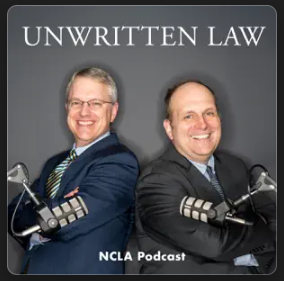- All Resources
- Amicus Brief Commentary
- Blog
- Civil Liberties newsletter
- Commentary
- Energy
- Featured
- Foreign Policy
- Free Speech
- Freedom of Association
- Health Care
- Immigration
- In the News
- Investigations
- Loper Bright
- Newsroom
- Op-ed
- Podcast
- Press Release
- Success Stories
- Victory
- Video
Georgia Supreme Court Rules Constitutional Challenge To Direct-Sales Ban May Proceed
Americans for Prosperity Foundation celebrates a Georgia Supreme Court ruling in Lucid Group USA, Inc. v. State of Georgia allowing electric vehicle (EV) manufacturer Lucid’s lawsuit challenging Georgia’s direct-sales ban to continue as a win for economic liberty. As AFPF argued in an amicus brief in support of Lucid, “[a] willing buyer of a lawful…
Americans for Prosperity Foundation Applauds Trump EPA’s Decision to Repeal Endangerment Finding and Restore Democratic Accountability
Americans for Prosperity Foundation applauds the Trump EPA’s decision to repeal the agency’s 2009 Endangerment Finding—a document the agency has used as a springboard to claim sweeping power under the Clean Air Act to unilaterally set national transportation and energy policy by administrative edict without Congress’s permission. The Endangerment Finding has underpinned a host of…
NCLA’s “Unwritten Law” Podcast Explores Amici Arguments in Relentless
The New Civil Liberties Alliance’s podcast, “Unwritten Law,” has released a new episode that explores the arguments presented in seven amicus briefs recently filed at the First Circuit in Relentless v. Department of Commerce, the companion case to Loper Bright Enterprises v. Raimondo. American for Prosperity Foundation’s brief is one of the seven discussed. From…
Sixth Circuit Highlights Loper Bright’s Impact on Other Deference Regimes
An interesting question after Loper Bright is how the demise of Chevron deference intersects with other deference doctrines that are still on the books, albeit perhaps on life support, such as Auer deference (which allows courts to defer to agency interpretations of their own regulations) and Stinson deference (which teaches that courts should defer to Sentencing Commission commentary on federal sentencing guidelines). In Niblock v. University of Kentucky, a recent Sixth Circuit…
AFP Foundation Files Amicus Brief in Relentless v. Department of Commerce
Americans for Prosperity Foundation (“AFPF”) has filed an amicus brief in Relentless v. Department of Commerce—the companion case to the historic Loper Bright Enterprises v. Raimondo. With Loper Bright held in abeyance on remand, the outcome in Relentless may have significant implications for proper implementation of the Magnuson-Stevens Act (“MSA”), as well as the understanding…
Federalist Society Event on Limits of Agency Authority
The Federalist Society is hosting a webinar on the “Nondelegation and the Limits of Agency Authority after Consumers’ Research and Loper Bright” next Friday, January 23 at 2:00 PM ET. Details and registration link below:
Federalist Society Event on SEC Rulemaking
The Federalist Society is hosting a webinar on the “Loper Bright Fallout for SEC Rulemaking” next Tuesday, January 20 at 12:00 PM ET. Details and registration link below: In an unprecedented action, the SEC in July dismissed with prejudice a pending enforcement case concerning an alleged violation of a rule promulgated under the Investment Company…
Supreme Court Conference Preview: Two Loper Bright Cert Petitions, Plus a Loper Relist
Tomorrow, the Supreme Court will consider for the first time two cert petitions at its conference presenting Loper Bright-related questions. A third, more tangentially Loper Bright-related petition will return as a relist. United National Foods is Back The petition in United National Foods, Inc. v. NLRB raises at least two Loper Bright implementation questions: Whether…
Americans for Prosperity Foundation Applauds Finalization of Trump NEPA Permitting Reforms
Today, the Trump Administration announced that the Council on Environmental Quality (CEQ) took a key step in achieving landmark permitting reforms by finalizing an Interim Final Rule (IFR) rescinding CEQ’s National Environmental Policy Act (NEPA) implementing regulations. Americans for Prosperity Foundation applauds this action, which was made possible, in part, by President Trump’s day-one Executive Order on “Unleashing American Energy,” which repealed an Executive Order issued by President Carter directing CEQ to issue government-wide NEPA rules. AFPF submitted a comment supporting CEQ’s IFR and this outcome. CEQ’s Final Rule…











Georgia Supreme Court Rules Constitutional Challenge To Direct-Sales Ban May Proceed
Americans for Prosperity Foundation celebrates a Georgia Supreme Court ruling in Lucid Group USA, Inc. v. State of Georgia allowing electric vehicle (EV) manufacturer Lucid’s lawsuit challenging Georgia’s direct-sales ban to continue as a win for economic liberty. As AFPF argued in an amicus brief in support of Lucid, “[a]…